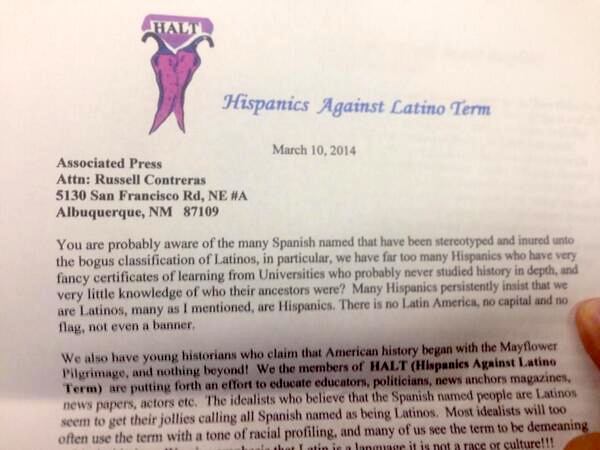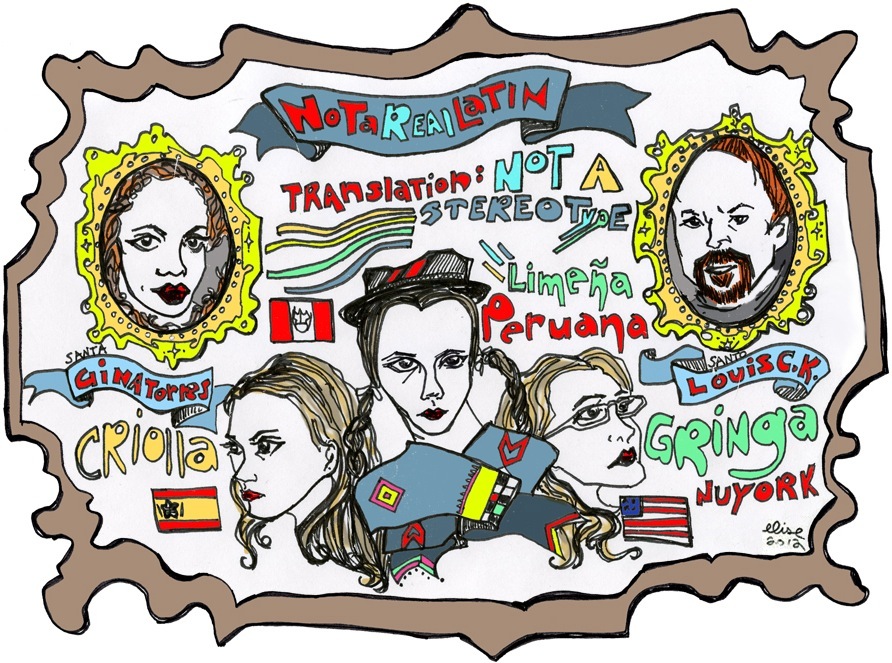identification
In Spanish Harlem, they looked at me and asked: ‘What are you?’
 I remember the first time I thought I might not be White.
I remember the first time I thought I might not be White.
I was about 8 years old, in my elementary school’s cafeteria. We had been learning about heritage in class that day, and everyone in my Michigan hometown, it seemed, had ancestors who came from Denmark or Holland. They were all blonde-haired and blue-eyed. I remember a classmate turned around and looked at me and said, “What are you?” “I’m a kid,” I answered, confused. “Just like you.”
“No,” was the reply. “I mean, what are you? Are you Italian? Indian?”
I was confused. “I’m an American,” I said, proudly. I knew my mom’s family went back in this country a long time, and had fought in the Revolutionary War. Why would I be Italian?
As I grew older, I became hyper-aware of my dark hair and dark eyes. Everyone in town—and in my family, it seemed—was tall, blonde, and blue- or green-eyed. They all had little ski-jump noses. My nose was big, round, and wide.
But my dad was a tall blonde Dutchman, and my mom always checked “White” or “Caucasian” on my school forms, and—why would I question my parents?—so I grew up White.
Except for the many, many times, White people did not accept me.
It gnawed at me, the question I received more and more the older I got: “What are you?”
By high school, I knew I wanted to go someplace where I didn’t stand out because of my features. Someplace where people looked like me. I chose New York City, where I instinctively knew there were people who looked like me, and where, I thought, no one would ask, “What are you?”
Mas…In Spanish Harlem, they looked at me and asked: ‘What are you?’
This L.A. pocha wishes she could speak better Spanish (video)
Los Angeles pocha Natalie Munguia didn’t learn Spanish when she was growing up, and now she feels left out, as she explains in this video for Sociology 244 at Whittier College. FYI, here’s the course description:
Mas…This L.A. pocha wishes she could speak better Spanish (video)
Don’t call me a ‘Mexican,’ America! Also, I’m not a ‘Latino’
 It’s a phenomenon older than the United Estates of America. We’ve named it Looking Down On More Recent Immigrants Syndrome:
It’s a phenomenon older than the United Estates of America. We’ve named it Looking Down On More Recent Immigrants Syndrome:
- In 1751, Founding Father Benjamin Franklin, a North American colonial with British roots, disparaged “stupid” and “swarthy” recently-arrvied German immigrants, who, he wrote, were too dumb to learn English, and did we mention they were “swarthy”?
- Discrimination against Irish Catholic immigrants by their English Protestant predecessors was one of the reasons 200 fresh-off-the-boat Irish United States Army draftees switched sides and fought for Mexico in the Mexican-American War of the 1840s. These deserters/heroes formed the famed Saint Patrick’s Battalion (Los San Patricios.)
- Hoity-toity German and Sephardic Jews who immigrated to the U.S.A. in the 18th and 19th Centuries were ashamed of the Hebrew homies who arrived later from Eastern Europe; the assimilated Jews banded together to “Americanize” the Russian and Polish immigrants in the 1880s.
Last week three latter-day Looking Down Syndrome sightings lit up our screen, INSISTENT MESSAGES from people who want you to know THEY ARE DEFINITELY NOT THOSE OTHER PEOPLE OVER THERE — those Mexicans and/or Latinos.
Mas…Don’t call me a ‘Mexican,’ America! Also, I’m not a ‘Latino’
LAPD finds Christopher Dorner wallet at Russian meteor crash site
 (PNS reporting from LOS ANGELES) Fugitive ex-cop Christopher Dorner’s wallet was found at the Russian meteor crash site, according to an LAPD statement issued here today.
(PNS reporting from LOS ANGELES) Fugitive ex-cop Christopher Dorner’s wallet was found at the Russian meteor crash site, according to an LAPD statement issued here today.
Although the Los Angeles Police Department does not have an explanation for how the charred wallet ended up on the meteor, observers note the theory supports the “Magic Wallet” theory the LAPD is using to explain how Dorner’s wallet and ID were simultaneously found on a boat in San Diego, at the San Ysidro border and intact in the ashes of the burned out cabin at Big Bear.
Mas…LAPD finds Christopher Dorner wallet at Russian meteor crash site




